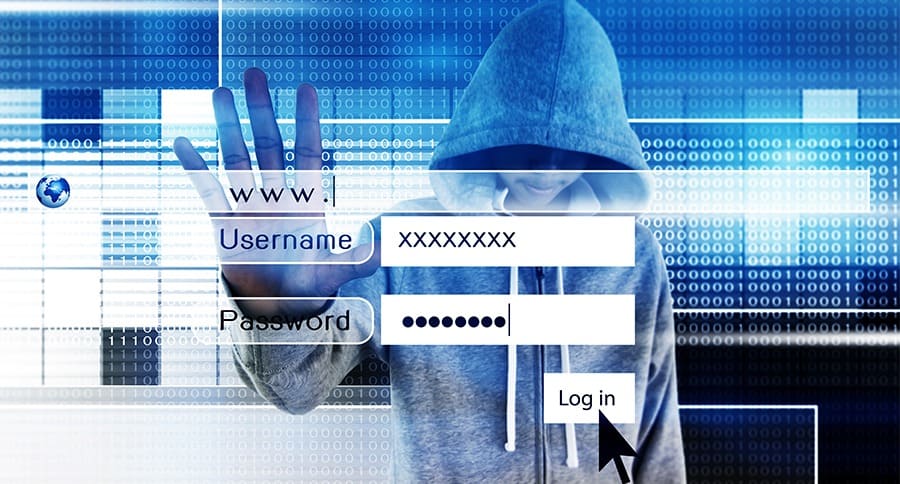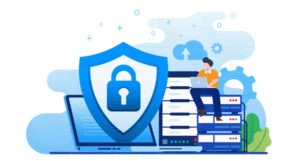
Everything There Is To Know About The Upcoming Rage Ethical Hacking
- By Ayushi Ray | June 14, 2021
What is Ethical Hacking?
Hacking is an activity where someone without consent or authority penetrates in to the server of
a particular person, organisation or institution and steals sensitive information. It can either be
motivated or can simply be mischief to encash important documents and information. So can
such an act be ethical?
To put it in simple words, Ethical hacking is legally breaking in to servers to check how strong
their defences are. It’s breaking in to the computer but with proper authorisation. Through ethical hacking a company can identify and rectify it’s weak spot before an attacker actually breaks in. A full proof system needs to be something that even a paid ethical hacker cannot break in to.
What are the responsibilities of an Ethical Hacker?

There are a few responsibilities that an ethical hacker is entrusted with and they include the
following –
1. Ethical hackers conduct a thorough research of a company’s system to understand the
vulnerable areas of penetration in their network.
2. It is an ethical hacker who writes a programme for checking how long a network can defend
itself from cyber crime and hackers.
3. It is their responsibility to check the system and network in and out to make it familiar with
breach.
4. Ethical hackers can only record and identify any possible breaches and security malfunctions
no matter how small it is.
5. They can advise you when and where to put high security for protection of data.
6. They keep you up to date with new patterns of cyber crimes and hacking.
7. Ethical hackers will only know and can suggest when the right time for security upgrades is.
8. After employing a new system, they will also perform various penetrative test upon that as
well, providing you a complete, an all in all protection against all sorts of cyber crimes and dark
web activity.

What are the tools of ethical hacking?
To prevent the influence of the dark web, ethical hackers require a number of tools that they have to find and stock up. These ethical hacking tools keep changing with the type of websites that they need to penetrate. The most common penetration tester is Linux OS “distro” which specializes for mostly all types of penetration tests. At present, Kali Distro is one of the most preferred and professional tools that ethical hackers use. Other than that, there are other several thousand tools that are required for pen tester use.
When choosing a tool for ethical hacking, the first thing that has to be kept in mind is how well
suited the tool is for the website on which the penetration needs to be carried out, and also the
quality of the product. There is no point in using a low quality product to avoid breach. The
product needs to be top notch, and another important thing to be kept in mind, is that the tool
does not contain any malware or bug to double cross the ethical hacker. Ethical hackers who are most trust worthy and best at what they do, do not depend on any external company links for creating a pen tool, they design, and code their own tools, because that is the best way to ensure safety. However, there are some hacking tools like Nmap, which can also be trustworthy and have been in the market for a long time.

What is the process of ethical hacking?
Ethical hacking is not a random or easily accessible task. It requires patience, skill, and most
importantly to know the proper steps. Of course, each type of website demands a separate list of
operation processes. However, there are the five steps which is followed for majority of pen
tests:
1. Reconnaissance- The first step in any ethical hacking methodology is reconnaissance, which is also known as the information acquiring phase. The aim of this footprint collection step is to gather as much information as possible. This is required because; an attacker before launching an attack also collects all necessary information about the target. Such information generally contains sensitive information such as passwords, personal details of employees, and more such information. There are tools such as HTTPTrack, which favours any attack from the darkweb, by helping them download an entire website to gather information about an individual. Sometimes search engines such as Maltego are also used for research purposes be it for an individual or an organisation.
Reconnaissance is definitely an essential phase when it comes to ethical hacking. It is nothing but retracing the steps of a cyber crime and in turn identifying when and through what attacks can be launched and how long can the organization’s systems resist those attacks from dark web. Generally, footprinting is collected from such places, which are: TCP and UDP services, Vulnerabilities, through specific IP addresses, Host of a network.
In ethical hacking, however, footprinting is usually of two kinds: One is the active footprint where information is collected directly from the target directly using tools such as Nmap by conducting a scan on the target’s network. Another is the passive footprinting method where information is collected without directly connecting with the target in any way. Both attackers and ethical hackers can collect information through social media accounts, public websites which are more vulnerable.
2. Scanning – This is the second step involved in the hacking methodology. Here attackers try to
find various ways to gain access of the target’s information. User accounts, credentials, IP
addresses of the target become the victim for gaining information. Ethical hacking also therefore
needs to include this step of easily gaining access in to the network and search for information.
Ethical Hackers use tools such as dialers, port scanners, network mappers, sweepers, and
vulnerability scanners for scanning phase to scan data and records.
3. Gaining Access- So, this step in hacking is when an attacker tries to gain unauthorized
information regarding the target’s networks. An attacker obviously employs several means to
conduct their cybercrime. This step generally attempts to enter into the system and exploit the
system by downloading malicious software or application, stealing sensitive information, getting
unauthorized access, asking for ransom, Ethical hackers and penetration testers can secure
potential entry points, ensure all systems and applications are password-protected, and secure
the network infrastructure using a firewall. They also sometimes can send fake social
engineering emails to the employees and from there, they get their next possible victim.
4. Maintaining Access- This step is actually the most crucial step. Once the infiltrator gains access inside the system of the target, they do not let go that easily.Thus he keeps on, launching DDoS attacks, and uses the hijacked system as a launching pad, or steals the entire database. They continue to maintain access, till the user is unaware of it. Ethical hackers or pen testers , on the other hand, utilize this phase by scrutinising the entire organization’s infrastructure and at the same time get hold of any breach, that they can lay their hand upon, to hold the network together.
5. Clearing Track- The last and final step of ethical hacking. All tracks should be cleared up, so
that there remains no proof. This step is vital for the attackers so that they leave no clues or evidence behind that could be traced back to them. The attacker generally deletes or uninstalls
applications, and files to ensures that the corrupted files are left as they were, before the pen test.

What are the skills required for ethical hacking?
This is of course an important aspect to know. Any lay man cannot become an ethical hacker.
They need to be proficient in handling and operating databases and systems. They also require
proper communication skills, which would make it easy for their employer to explain to them
properly any problem that they face, and also ethical hackers need to be pretty vocal regarding
every problem that they themselves encounter. Apart from these, they also require to know about
Network traffic sniffing, injecting SQL, orchestrating various attacks from the dark web, DNS
spoofing, exploiting vulnerabilities, guessing password and subsequent tracking, and session
hijacking and spoofing.

How to have a career in ethical hacking?
Ethical hacking is a sleeping giant, by the next couple of years, this sector is expected to boom by creating an 100% increase in job opportunities. The industry of ethical hacking will witness a 350% growth by 2021. In India, alone, the number is expected to rise by 77,000 in the next five years.Top organisations such as -Dell, Google, Wipro, Reliance, Infosys, and IBM offer some of the best and highest paid ethical hacking jobs in India. The minimum requirement for being an ethical hacker is having a Bachelor’s degree in information technology or an advanced diploma in network security.
Some of the best institutes in India, to pursue ethical hacking are – Indian school of ethical hacking, Indian Institute Of Hardware Technology Ltd. (IIHT), New Delhi, Institute of Information Security, International Institute of Information Technology and many more.
A student after successfully completing the required courses and diplomas can therefore opt for
the following position in terms of employment –
1. Data Security Analyst
2. Network Security Engineer
3. Security Auditor
4. Cyber Security Analyst
5. Penetration Tester
6. Information Security Officer
And, the salary ranges from Rs. 480k – Rs. 690k annually
What are the benefits of an ethical hacker?
Ethical hacking is quite important and here’s why – in this present situation where cybercrime is on the rise, and the internet is not a safe space any more, cyber criminals often breach security systems and can compromise the privacy of an entire nation. New viruses, malwares are multiplying every day, and so an ethical hacker is required to safeguard businesses and government agencies. Every day 230,000 new malware samples are produced and the number is expected to keep growing in the future.
Apart from breach of security, ethical hacking constitutes a few more benefits – of which, the first is discovering vulnerabilities from an attacker’s perspective, implementing a secure network safe from cybercrimes, running a tension free, trust worthy business where the data of clients is protected. According to survey, 43 percent of cyber crimes are aimed at small businesses, which will require them to hire more ethical hackers for safe running of businesses.

What does the future holds for ethical hacking?
Like branches of IT, ethical hacking is slowly evolving. Most clients prefer professional, skilled
ethical hackers who have done courses regarding the same. Soft wares which test vulnerability
are now mostly used for pen tests, and definitely an important constituent for the hackers’ tool
kit. Certain toolkits also do proper work from scrutinising to attacking, much like a person of the
dark web would do.
Open source Bloodhound is definitely such a kind of tool kit. It shows an infiltrator graphics how
connected the entire network is. When given a proper aim, Bloodhound often guides an attacker
through paths which might have been previously unknown, manually. When using a tool as
Bloodhound, the pen testers need not do much, because such tool kits are self-sufficient in every
aspect. Of course, there are more such commercial penetration testing software that is
sophisticated and self-sufficient.
So previously when an ethical hacker needed to show their skill, or prove their worth, they had to breach a particular network of the company itself. But now, most clients want to see proper slides with pictures, videos, graphics and animation, if an ethical hacker is planning to protect a particular network from breach. Similarly to train young candidates, such video graphic demonstration is now preferable, as it creates more interest and better understanding. An ethical hacker would need to conduct a proper pen test for their clients. But just one off-hack will not do the trick. They will have to design their attack that is realistic and might come from a real life attacker. But is identifying the weak spots and vulnerabilities in the network enough? Obviously not, the ethical hackers then need to provide an alternative and solution to what could be done, to make the network strong and increase its defences against breach. Therefore, demo pen tests should up every ethical hacker’s sleeves for impressing their clients.
As per the 2019/2020 Official Annual Cybersecurity jobs report, the need for information security personnel will lead to an estimated 3.5 million unfilled jobs being created globally by 2021. In the 21 st century, enemies do not creep in front with war ammunition, but often from the curtains of the internet under an anonymous face, so having a proper powerful is not only important but essential to avoid any kind of breach and protect sensitive and private information. We have often seen how renowned organisations with an international presence had their websites and network hacked, and how that has been used for blackmailing and exacting ransom. So the job opportunity for an ethical hacker will always be on the rise, as more and more people are understanding their importance








